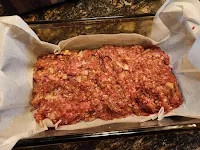A few weeks ago, a former colleague reached out to thank me for serving as a reference for his new position. After the pleasantries, he gently mentioned that he'd noticed I haven't posted anything on my blog in a few months. "Everything okay?" he wrote. "Just busy, or have you run out of things to complain about?"
He had a point. It's been a while. But if I'm being honest, I haven't run out of material—far from it. Life has a way of continuously validating certain uncomfortable truths, and lately I've been thinking a lot about one particular truth that my mother tried to teach me years ago.
Mom used to tell my siblings and me, something to the effect of: If you remember that people are dumb, you will never be disappointed...
That Mom-proverb coupled with one of her other favorites: If common-sense were common, it wouldn't be so valuable...
These Mom-proverbs have always stuck with me. I know she told us those things because she was trying to convey that she believed we were each smart and "above average." While I realize, in some respects, these sentiments are rooted in the Lake Wobegon effect, I've never really forgotten her wisdom. Whether that was dealing with Little League parents who treated six-year-old tee ball like Game 7 of the World Series, bosses who make arbitrary "design" requests, or colleagues who believe that "office transparency" means they have to know everything about everything, Mom's observations have proven remarkably prescient.
What I didn't realize until recently is that my mother had essentially distilled the essence of what Italian economist Carlo M. Cipolla would later formalize in his book "The Basic Laws of Human Stupidity." While presented with academic rigor, Cipolla's work arrives at conclusions that would make my Mom nod knowingly.
Why Experience Keeps Proving Mom Right
Cipolla identified five laws that explain why stupidity is both more prevalent and more dangerous than we assume. His insights perfectly capture what I've witnessed throughout many of my career and volunteer experiences.
 |
| Early experiments in transportation Far Side - ©1984 Gary Larson |
The second law reveals that stupidity strikes randomly. Intelligence, education, or position don't provide immunity. Consider the university colleague whom I've shown six times in one month how to sum a column of numbers in Excel. Six times, using the same basic function. This isn't about learning curves or complex software; it is about someone who uses spreadsheets daily but refuses to retain the most fundamental operation. Credentials don't protect anyone from poor judgment of lack of effort.
Cipolla's third law cuts to the heart of why stupidity is so destructive: stupid people cause harm to others while gaining nothing themselves, often even hurting themselves in the process. In 2024, this played out perfectly with rural farmers. America's most farming-dependent counties overwhelmingly backed Donald Trump in last year's election; his support averaged 77.7% in America's breadbasket. American farmers were convinced that Trump's policies would protect their economic interests. (Felder, 2024), (Atkinson, 2024) Yet when the new administration began implementing mass deportation policies in early 2025, these same agricultural communities found themselves in crisis. "We are dangerously close to a breaking point," and "Farmers and other employers say they worry their workers will be deported" became common refrains as the very workforce these farmers depended on faced removal. The agricultural sector, which voted overwhelmingly for Trump, now pleads for exemptions from the policies that they helped elect him to implement. Simultaneously harming immigrant communities, damaging their own economic prospects, and undermining the agricultural system that feeds our nation—all while achieving none of their stated goals of economic prosperity. (Chishti & Bush-Joseph, 2025), (Rahman, 2025)
The fourth law warns that reasonable people consistently underestimate the damage that foolish people can cause. We assume rationality will eventually prevail, that obvious problems will self-correct, and that someone will step in before things get too bad. Instead, systems are designed by committee, and processes are implemented that prioritize appearance over function, like fixing font preferences. At the same time, actual problems go unaddressed, and organizations create processes for the 20 percent of exceptional cases rather than optimizing for the 80 percent that matter most. Looking back on my volunteer Little League experience, parents spent countless hours debating rules for edge cases, uniform policies, practice schedules, and "rules loophole" scenarios—while the 80 percent that mattered, like ensuring kids actually learned baseball and had fun, became a theater of adult insecurity, robbing their children of joy and development.
Cipolla's fifth law delivers the stark conclusion: stupid people are the most dangerous because their actions are both harmful and unpredictable. You can understand and work around people who act out of greed or malice; their motivations make sense, even if you disagree with them. However, the truly dangerous person is the one whose decisions follow no logical pattern you can anticipate or counter. They're not trying to gain an advantage; they're just creating chaos while everyone else tries to make sense of senseless behavior. Like the executive who insisted I drop everything to change fonts on thirty reports because "that's the font he prefers reading internal reports in." Not because the data was wrong, not because the formatting was unclear, just because he had a font preference. Meanwhile, I'm trying to find and fix actual data errors, but font aesthetics have become the urgent priority. There's no rational framework for predicting when someone will prioritize arbitrary preferences over actual problems — you just have to build systems robust enough to survive the inevitable disruption.
The Digital Amplification Effect
What makes these laws particularly relevant today is how our interconnected world amplifies stupidity's reach. Social media platforms reward engagement over accuracy, creating perfect conditions for Cipolla's predictions to manifest at scale. Misinformation spreads faster than corrections, conspiracy theories find fertile ground in confirmation bias, and complex problems get reduced to soundbites that satisfy our need for simple answers to complicated questions.
The rapid spread of obviously false information during major news events demonstrates how we consistently underestimate both the number of people who will believe nonsense and their ability to influence others. Mom's wisdom about disappointment becomes prophetic. If you expect rational responses to obvious facts, you'll be let down every single time.
Living with the Reality
I don't mean to be cynical or misanthropic. Acknowledging the prevalence of stupidity isn't about looking down on others, and indeed, I have fallen into this very trap on occasion. Instead, understanding the phenomena is about managing expectations and preparing for reality. When I remember Mom's advice, I'm less likely to be blindsided by poor decisions in group settings, more likely to build redundancy into my plans, and better equipped to respond constructively when things go sideways.
My goal isn't to make you jaded, but to have you become realistic. By accepting that stupidity is not just common but predictable, we can all design systems that account for it, we can communicate in ways that minimize its impact, and maintain our own sanity when confronted with its inevitable manifestations.
Mom helped prepare me, my brother, and my sisters for a world where critical thinking is rare, good intentions don't guarantee good outcomes, and the phrase "I can't believe they did that" loses its power to shock. She wanted us to be ready to be wise, not bitter, not cynical.
Turns out she was teaching us Cipolla's laws decades before I'd ever heard of them. Sometimes the most profound truths come wrapped in the simplest packages, delivered by the people who love us most and want us to be prepared for the world as it actually is, not as we wish it were.
Common sense really isn't all that common. And if you remember that people act dumb, you really will never be disappointed.
You'll just be prepared. Thanks, Mom!
References:
- Atkinson, M. (2024, November 7). "Rural America sent Trump back to the White House. Flip in Clarendon County helps explain why." Post and Courier. Link
- Chishti, M. & Bush-Joseph, K. (2025, April 25). "In First 100 Days, Trump 2.0 Has Dramatically Reshaped the U.S. Immigration System, but Is Not Meeting Mass Deportation Aims." Migration Information Source. Link
- Felder, B. (2024, November 13). GRAPHIC: "Trump support grew in America’s top farming counties despite first-term trade war." Investigate Midwest. Link
- Rahman, B. (2025, April 29). "Trump’s mass deportations are pushing US farms to breaking point." Newsweek. Link






